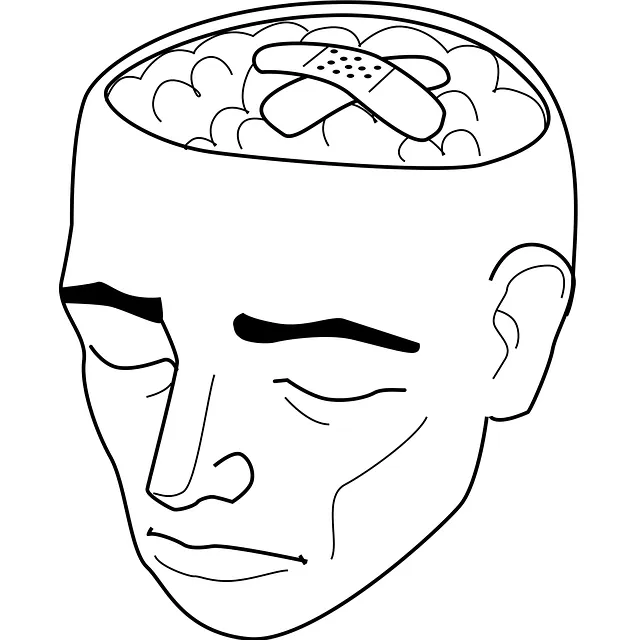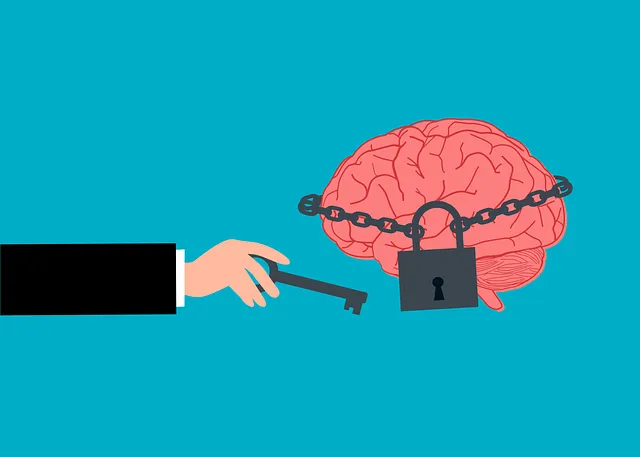Northglenn Kaiser Permanente behavioral health services takes a comprehensive, holistic approach to risk assessment, addressing not just mental health issues but also patients' diverse cultural backgrounds. They prioritize proactive harm minimization through rigorous analysis of personal history, environmental factors, and behavioral patterns. Key techniques like group therapy and individualized counseling promote resilience, self-esteem, and healthy coping mechanisms. Continuous training equips professionals with advanced risk assessment skills and emotional regulation techniques, while regular evaluations and updates ensure the incorporation of best practices and client feedback into harm minimization plans.
At Northglenn Kaiser Permanente Behavioral Health Services, risk assessment and harm minimization planning are foundational to delivering safe and effective care. This comprehensive guide explores key aspects of these processes, from understanding risk assessment as a cornerstone for safety to identifying potential harms and vulnerabilities through strategic intervention planning. Learn how staff training, implementation, and continuous evaluation enhance Northglenn Kaiser Permanente’s ability to navigate risky situations while fostering a culture of safety and well-being.
- Understanding Risk Assessment: A Foundation for Safe Care at Northglenn Kaiser Permanente Behavioral Health Services
- Identifying Potential Harms and Vulnerabilities: A Comprehensive Approach
- Developing a Harm Minimization Plan: Strategies for Effective Intervention
- Implementation and Training: Equipping Staff to Navigate Risky Situations
- Continuous Evaluation and Improvement: Ensuring Long-Term Safety and Well-being
Understanding Risk Assessment: A Foundation for Safe Care at Northglenn Kaiser Permanente Behavioral Health Services

At Northglenn Kaiser Permanente Behavioral Health Services, understanding risk assessment is more than just a process; it’s a cornerstone for delivering safe and effective care. By meticulously evaluating potential risks, we ensure that each patient receives individualized attention tailored to their unique needs. This holistic approach, integrated with principles of Cultural Sensitivity in Mental Healthcare Practice, allows us to address not only mental health awareness but also the diverse cultural backgrounds of our patients.
Risk assessment enables our team to proactively identify and mitigate potential harms, fostering an environment that promotes mental wellness. Through rigorous analysis, we consider various factors, including personal history, environmental influences, and behavioral patterns. This comprehensive perspective ensures that treatments are not just reactive but proactive, enhancing the overall quality of care provided at Northglenn Kaiser Permanente Behavioral Health Services.
Identifying Potential Harms and Vulnerabilities: A Comprehensive Approach

Identifying potential harms and vulnerabilities is a cornerstone of effective risk assessment and harm minimization planning, especially within behavioral health services like those offered by Northglenn Kaiser Permanente. This comprehensive approach involves a systematic scan to uncover not just immediate dangers but also underlying factors that could lead to adverse outcomes. By examining various aspects, including historical data, client demographics, and environmental influences, healthcare providers can gain profound insights into the unique risks each individual faces.
For instance, at Northglenn Kaiser Permanente behavioral health services, professionals might consider how socioeconomic factors, past traumatic experiences, or co-occurring mental health conditions interplay to create vulnerabilities among patients. This includes assessing common risk factors for mental wellness issues like anxiety relief and positive thinking. Through such a holistic analysis, they can tailor interventions to address specific needs, ensuring more effective harm minimization strategies.
Developing a Harm Minimization Plan: Strategies for Effective Intervention

At Northglenn Kaiser Permanente behavioral health services, developing a robust Harm Minimization Plan is paramount in addressing potential risks and promoting emotional well-being. This plan involves strategic interventions tailored to mitigate harm and enhance mental health awareness among individuals seeking support. One key strategy is implementing Emotional Well-being Promotion Techniques that focus on fostering resilience, coping mechanisms, and positive self-regard. These techniques can range from group therapy sessions encouraging open dialogue and peer support to individualized counseling targeting specific issues like low self-esteem.
By integrating these approaches, the plan aims to empower individuals with tools to navigate challenges, improve their Self-Esteem Improvement, and adopt healthier coping strategies. It also emphasizes early intervention to prevent escalation of issues. Through continuous assessment and adaptation, Northglenn Kaiser Permanente ensures that its Harm Minimization Plan remains effective in serving the diverse needs of its clients, ultimately contributing to a safer and more supportive environment for behavioral health services.
Implementation and Training: Equipping Staff to Navigate Risky Situations

At Northglenn Kaiser Permanente behavioral health services, implementing a robust risk assessment and harm minimization strategy begins with comprehensive staff training. Mental health professionals must be equipped to navigate complex and potentially risky situations with confidence and expertise. This involves equipping them with effective risk assessment for mental health professionals skills, enabling them to identify potential hazards and implement appropriate interventions early on.
Through ongoing training sessions, staff learn emotional regulation techniques that foster not just their own emotional well-being promotion but also enhance their ability to support patients’ emotional needs. This holistic approach ensures that the team is prepared to handle a wide array of challenges, thereby enhancing patient safety and outcomes while providing compassionate care at Northglenn Kaiser Permanente behavioral health services.
Continuous Evaluation and Improvement: Ensuring Long-Term Safety and Well-being

At Northglenn Kaiser Permanente behavioral health services, continuous evaluation and improvement are integral to maintaining a safe and supportive environment for all clients. This involves regularly reviewing and updating harm minimization plans based on emerging research, best practices, and client feedback. By fostering a culture of ongoing learning, we ensure that our approaches remain effective and relevant in addressing the complex needs of our diverse community.
Cultural sensitivity in mental healthcare practice, compassion cultivation practices, and mood management are key areas of focus in this continuous evaluation process. We actively incorporate these principles into our risk assessment strategies, recognizing their profound impact on client outcomes and overall well-being. Through regular workshops, staff training sessions, and collaborative discussions, we cultivate an environment where innovative solutions can emerge, ultimately enhancing the quality of care provided at Northglenn Kaiser Permanente behavioral health services.
Risk assessment and harm minimization planning are paramount for ensuring the safety and well-being of individuals at Northglenn Kaiser Permanente Behavioral Health Services. By understanding risk assessment as a foundational component, identifying potential harms and vulnerabilities through comprehensive approaches, developing effective intervention strategies, equipping staff with necessary training, and continuously evaluating improvements, the organization can create a robust system that minimizes risks and promotes positive outcomes for all patients.






